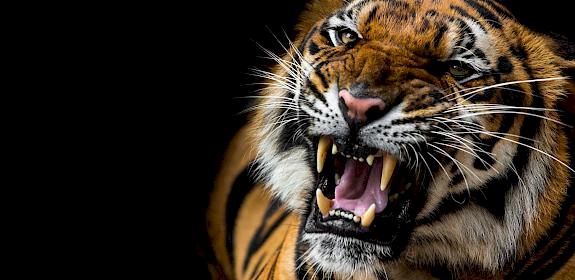Critically Endangered Sunda Pangolin finally receives the highest protection it deserves
Sabah, Malaysia, 13th February 2018—There’s a little good news for the world’s most trafficked mammal ahead of World Pangolin Day this year.
The state of Sabah in Malaysia, which has seen some of the country’s biggest pangolin seizures, has given the Critically Endangered Sunda Pangolin Manis javanica the highest level of protection under national legislation.
Sabah’s cabinet approved the listing of the pangolin in the “Totally Protected” category of its wildlife law which bars hunting, collection or trade in the animal and provides significantly higher penalties for traffickers.
The decision to elevate the status of the species was announced earlier today by a state official who delivered a speech on behalf of Sabah’s Tourism, Culture and Environment Minister Datuk Masidi Manjun, which was quickly picked up by media.
This higher protection for Sunda Pangolins comes 20 years after Sabah’s Wildlife Conservation Enactment 1997 came into place and brings protection for pangolins in line with the rest of Malaysia. Sabah has since revised the 1997 Enactment and it is now known as Wildlife Conservation (Amendment) Enactment 2016.
The Sunda Pangolin has been considered Totally Protected in Peninsular Malaysia since 1972 and in Sarawak, since 1998. In Sabah, however, the species had been listed as “Protected”, allowing for them to be hunted with permits, though these were rarely issued.
Sabah’s move now makes it the only place in Malaysia where Sunda Pangolin traffickers are likely to receive a six-month stay in jail upon conviction.
This is due to the 2016 amendments to Sabah’s wildlife law, establishing higher fines for many offences including a fine of up to MYR250,000 (USD60,000) or a minimum imprisonment term of 6 month to 5 years, or both for anyone caught in possession of a Totally Protected species.
“Sabah’s commitment to saving the Sunda Pangolin is to be commended and couldn’t come at a better time with World Pangolin Day just ahead of us,” said Kanitha Krishnasamy, Acting Director for TRAFFIC in Southeast Asia.
“The species is under incredible threat from illegal trade with the unyielding demand for its scales and meat. Upping the risks for poachers and traffickers sends a clear message that they’ll have to pay for their crimes,” said Krishnasamy.
In 2011, customs officers seized closed to five tonnes of skinned pangolins from a boat off Sabah waters. TRAFFIC’s analysis of record books seized from a warehouse in Sabah showed 22,000 pangolins trafficked from that one location over a period of 14 months between 2007 and 2009.
Sabah has also been in the spotlight for recent large-scale interceptions of pangolin scales where custom officers seized a whopping 13 tonnes from just two shipments. In both seizures, two local men, including one who owned the company that was reportedly shipping the scales to China, were arrested to aid with investigations. Over a seven month period, Royal Malaysian Customs intercepted a staggering 15 tonnes of pangolin scales.





